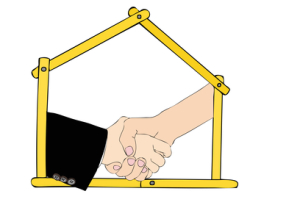 When I meet with prospective clients for the first time, I almost always hear them say that all they want is a “fair” agreement. Nobody ever wants to take advantage of their spouse or achieve an “unfair” result. The problem is that they are both likely to define “fair” differently! Rather than trying to achieve a “fair” result, I often suggest that they try to obtain “the best possible outcome under the circumstances.”
When I meet with prospective clients for the first time, I almost always hear them say that all they want is a “fair” agreement. Nobody ever wants to take advantage of their spouse or achieve an “unfair” result. The problem is that they are both likely to define “fair” differently! Rather than trying to achieve a “fair” result, I often suggest that they try to obtain “the best possible outcome under the circumstances.”
Often when couples are ending their marriage, one of the greatest challenges they face is figuring out how to live separately on the same income that they could barely live on together! Since they are going to be setting up two households and there is usually no additional income coming in, it is often very difficult financially (not to mention emotionally) to live separately.
I recently received an email from John expressing how unfair it felt for him to have to pay support to Anne so that she could live separately, when she was the one who wanted out of the marriage. He was not likely to feel that any result was “fair” if it meant he had to support her. Yet she clearly needed some financial assistance from him in order to pay her bills.
Rather than focus on achieving a “fair” result, I suggested that they focus on how they could live separately in a way that minimized the impact on themselves and their children. When we did that, John realized that he would need to support Anne so she could afford a residence where their children would be comfortable when they were with her.
This is not to say it was easy. Achieving a workable result required them to make difficult choices and change their lifestyle in order to create an agreement that worked for everyone. But by doing this in mediation, instead of hiring two lawyers to engage in a costly and lengthy legal battle, John and Anne were able to obtain the “best possible outcome under the circumstances” for themselves and their children.
Feel free to ask any questions, to comment, or to request more information in the Comments Box below. Also, please forward this blog to anyone you know who would be interested in its topic.
Comments & Replies from Social Media
__________________________________________________
Hi Daniel. “Fair” is indeed subjective to most people. Some people are capable and willing to make sure others get an equitable share while also claiming for themselves but others, however, see “fair” as them, exclusively getting what they want, usually much more than most of us would consider “fair.”
In the scenario on the link, I would question what is “fair” and equitable since that is the question, not what is legal. Legally, the soon-to-be ex-husband must pay his ex-wife for help supporting their children and his ex-wife must not pay anything to him for when he is raising their children. That’s just the current reality of our culture to debate or ignore.
Is it equitable? No. Is it reasonable and empathetic if she filed for divorce and now expects to be sent money while he also must provide for himself? No.
Again, just reality.
The system is not set up to provide for children well, either emotionally or financially, and it believes that only one party in a divorce must send the state money. Sadly, many children also go without financial support and exasperated parents give up pursuing it.
By Michael Toebe (Via LinkedIn)
__________________________________________________
Thank you for this Daniel. I think you hit the nail on the head when you said what was fair for the children. I see so often separating parents who don’t want to blame…yet they mention past events, want “their time” with the kids to be fair and equitable without validation as to why this is in the best interest of the children. If more parents truly put their focus on their kids, and concerned themselves with what is “fair” for the kids rather than themselves, I think that by default everyone would be more satisfied with the outcomes. The challenge comes in transitioning their thoughts/feelings etc to be truly kid focused. Cheers
By Anne Hastry Sleeman (Via LinkedIn)
__________________________________________________
I try to stay mindful that the resolution of the conflict is the property of the disputants. I have facilitated ADR sessions where the outcome may appear to be one sided; however, the participants determine what is fair to them on their terms, as well as if they can live with the points of the agreement. My question to the disputants is: What is acceptable to you based on your ability to negotiate the terms of the settlement between yourselves? I underscore Daniel’s comment what is “the best possible outcome under the circumstances?”
This is their decision. Fairness is based on their relationship regardless if the relationship is sweet, sour, or indifferent. I cannot always fathom a bond that existed between people at one point in time that influences their present decisions or their willingness to accept more or less within the settlement terms. Instead of a business or financial need, perhaps a personal or emotional need is being served that only the disputants can understand. A financial need may skillfully disguise a pure emotional or personal need. On the other side of the coin, a financial demand can be the vehicle for inflicting emotional pain on the other party. I have seen disputants agree to greater concessions or accept seemingly unreasonable terms simply to move on and to put the past behind them.
If I test the waters to see if both parties are satisfied with the outcome, and they mutually agree, I cannot intervene and declare that one side received the wrong end of the stick. Fairness is determined by the disputants with me as the neutral facilitator. Financial and personal needs hold relative importance and weight based on the relationship between the people in conflict. It is hard to tell which are stronger since I do not always know their value based on the disputants’ past, present, and anticipated future.
By John Turley (Via LinkedIn)
__________________________________________________
“Rather than focus on achieving a “fair” result, I suggested that they focus on how they could live separately in a way that minimized the impact on themselves and their children. When we did that, John realized that he would need to support Anne so she could afford a residence where their children would be comfortable when they were with her.”
Well done. NO ONE likes to pay to support an ex spouse– and least of all the “leavee”. It may not, in fact, be “fair.” (Many laws are not “fair” as I think most will agree.) Taking a “long view” seems likely to help.
By Carroll Straus (Via LinkedIn)
Share with Friends:
Need More Information?
To schedule a free phone or video consultation, complete and submit the form below, email us at [email protected], or call 518-529-5200.





